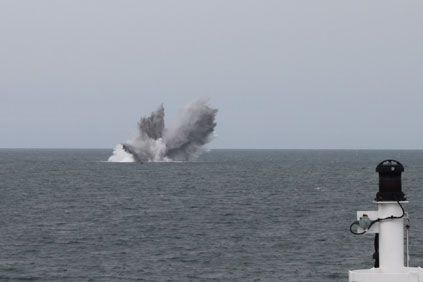The 108MW Riffgat offshore project had been due to be completed in July 2013.
A Tennet spokeswoman declined to confirm press reports that work would now be completed by the end of the year, stressing it is not possible to definitely say how fast work will progress.
"Work is ongoing around the clock by a 60-strong team clearing the material, including mines and boxes of munitions, but the situation is complicated by strong currents and turbulence, and problems with algae," she said.
"Surveys carried out in 2008 and 2010 to detect magnetic anomalies did not reveal the massive amount of munition that has to be cleared away. A further survey in early 2012 showed that a larger sea bed area has to be cleared, and that the work is more difficult and complex than had been expected."
Tennet was also unable to comment on whether the situation comprises force majeure, which in contractual terms would allow the company to pass it as an unavoidable problem.
The spokeswoman said that any compensation due to energy company EWE Vertrieb, which owns 90% of Riffgat, and renewable energy company Enova Energiesysteme, which owns the other 10%, would be made in line with legal requirements.
This not the first time WW2 ammunition has impeded the development of offshore wind farms. In recent years, unexploded bombs were removed at UK North Sea projects Greater Gabbard and Sheringham Shoal.

.png)


.png)










